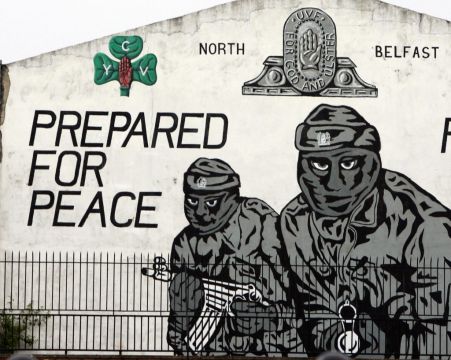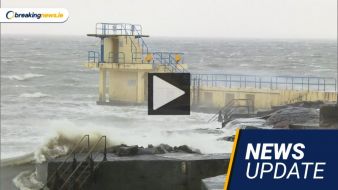Children in Northern Ireland are not properly protected from paramilitaries and criminal gangs, the North's Commissioner for Young People has said.
Last year a study found that two in five young people said paramilitaries create fear and intimidation in their area, with more than half agreeing or strongly agreeing they contribute to crime, drug dealing and anti-social behaviour.
Koulla Yiasouma, Northern Ireland Commissioner for Children and Young People, said there are serious questions about current levels of protection.
“Children and young people are not being properly protected from the wide-ranging effects of being exploited by so-called paramilitaries or criminal gangs,” she said.
“While we hear about high-profile assaults and shootings or episodes of civil unrest in the media, we rarely hear about the full range of harm and abuse which affects children and young people’s daily lives.”
Death threats
Ms Yiasouma said the concerns include death threats for not leaving an area or complying with requests as well as drug debt and involvement in distribution, being coerced into intimidating or harming others, violent protest and civil unrest and recruitment into paramilitary or criminal gangs.
“These all relate directly to the abuse and exploitation of children and young people and must be recognised and named as such,” she said.
“Children must be seen as children first and responded to by the child protection system.
“Representatives from statutory and voluntary and community organisations have spoken passionately to us about the levels of vulnerability they see in young people who can become exploited by these organised gangs.
“It is clear this remains a huge and very worrying issue for our children and young people and our government must meet its obligations as a signatory to the UN Convention on the Rights of the Child to protect them from all forms of harm and exploitation.”
Safeguarding agencies
Ms Yaisouma commended work being undertaken to support and protect children by community and statutory organisations, as well as the Education Authority and the PSNI.
“However, the role and remit of safeguarding agencies here is less clear,” she said.
“This raises serious questions about how well the framework for safeguarding children and young people currently protects those who come to harm at the hands of these criminal gangs.
“Guidance and procedures must fully address the abuse and exploitation children can be subjected to within their communities.
“It must also seek to learn from other jurisdictions where work to support children who are victims of criminal exploitation has been progressed to a greater extent.”
The commissioner has provided advice to the Department of Health, Department of Justice, the wider Executive and agencies.
It urges the promotion of awareness of child abuse and exploitation by paramilitary groups and criminal gangs, and the building of confidence in the role of statutory agencies to support and protect children, families and communities.
Her advice also urges sustained activity to reduce community vulnerability to violence and exploitation as well as intervention where children are abused and exploited and review guidance to ensure that child safeguarding procedures are triggered, and pursuing those who seek to harm, abuse and exploit children through effective identification, disruption, investigation and prosecution of offenders.







